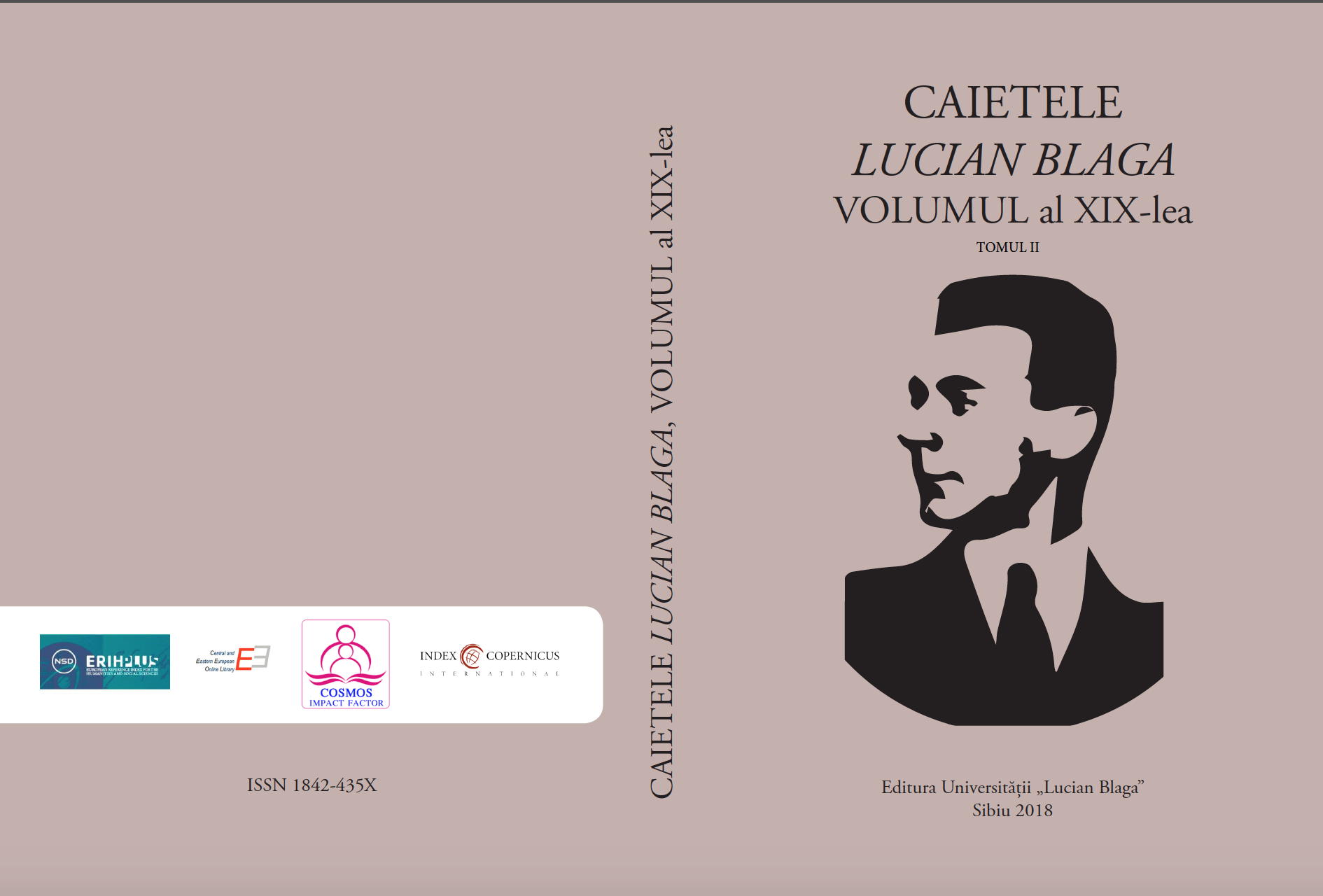
Mai e posibilă „întoarcerea” cititorului?
Returning Reader is a study about the „Final Frontier”, a 2018 book about the theory of reading.
More...We kindly inform you that, as long as the subject affiliation of our 300.000+ articles is in progress, you might get unsufficient or no results on your third level or second level search. In this case, please broaden your search criteria.

Returning Reader is a study about the „Final Frontier”, a 2018 book about the theory of reading.
More...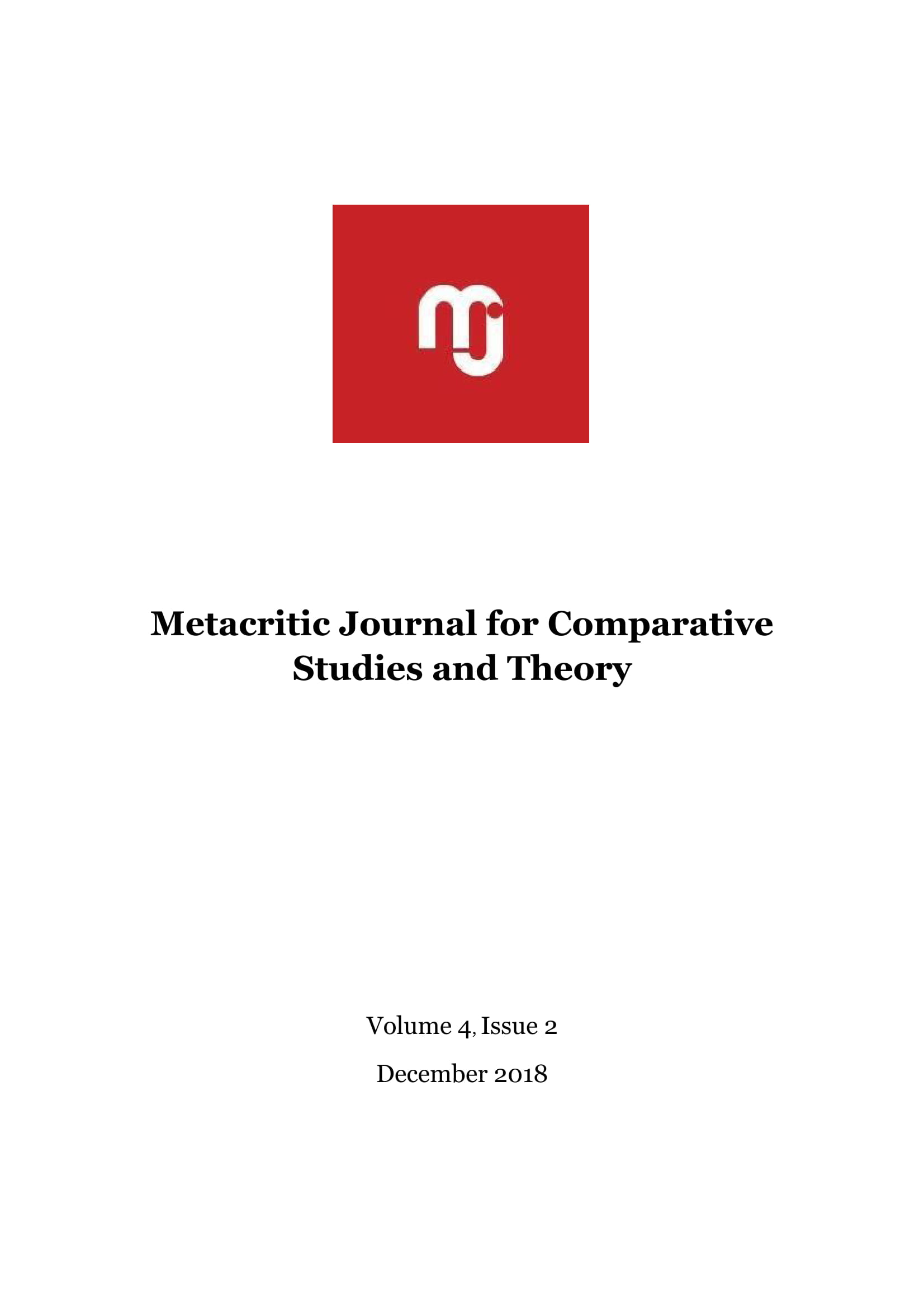
This essay will serve the double purpose of investigating the aesthetic dimensions of Thoreau’s environmental philosophy as depicted in his classic memoir Walden (1854) while examining the philosophical and political implications of its tendency to break down the boundaries between natural and technological landscapes. Although critics have tended to identify Thoreau as deeply rooted in an Emersonian transcendentalist tradition viewing nature as an organized and holistic “whole”, I will argue that Thoreau’s ecophilosophy seeks to reconcile the idealistic with the empirical pole and highlight the tensions between natural and technological objects and situations. I will start by studying how Thoreau approaches man-made technologies and develops a proto-ecocritical form of the sublime. I will also argue that a reconsideration of Thoreau’s poetics sheds a new light on the goals of environmental (non)fiction and urges the reader to reconsider the concept of the Anthropocene as the Capitalocene.
More...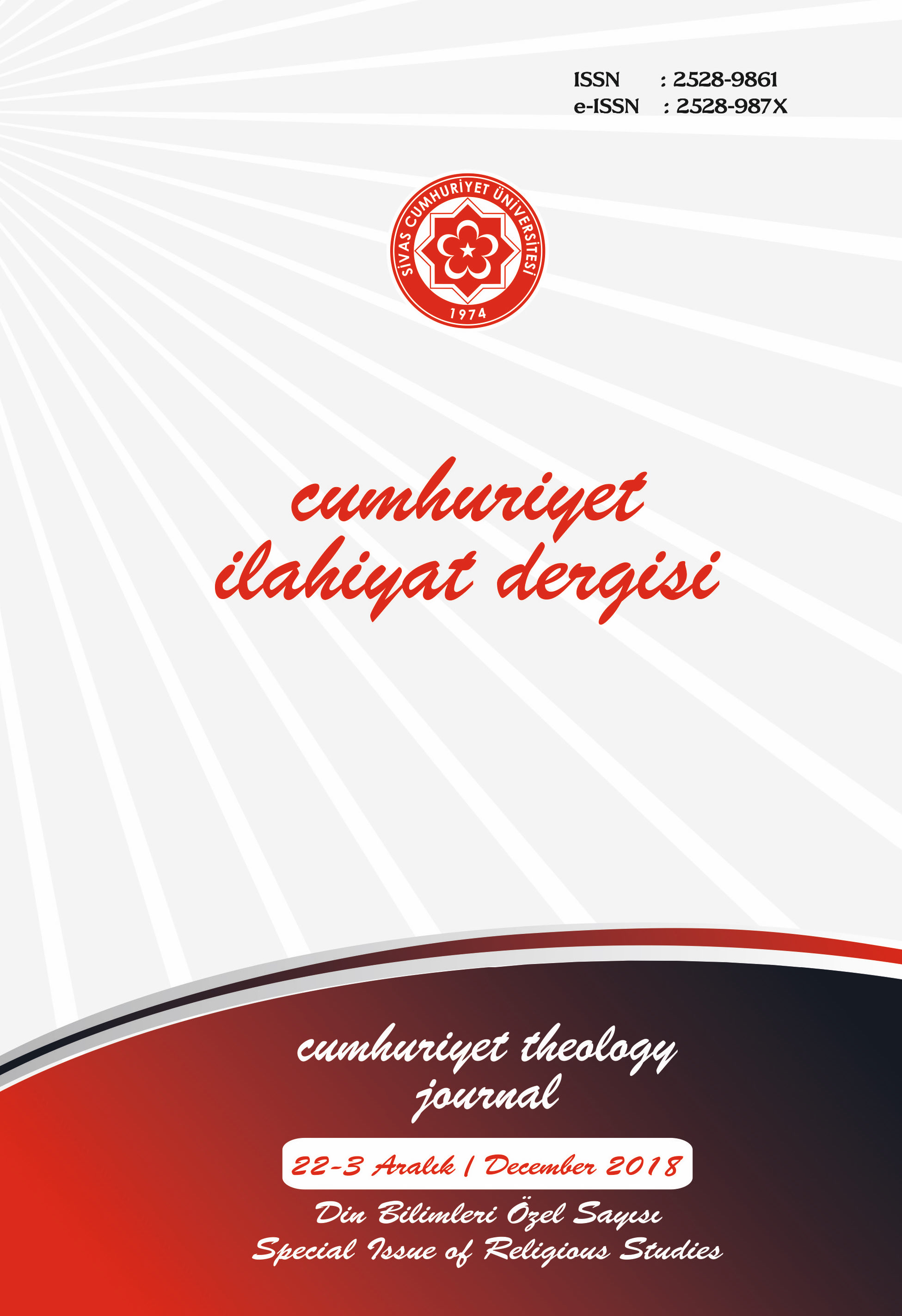
Whether God has a knowledge is a controversial issue both philosophy and theology. Does God have a knowledge? If He has, does He know the particulars? When we assume that God knows particulars, is there any change in God’s essence? In the theistic tradition, it is accepted that God is wholly perfect, omniscience, omnipotent and wholly good. Therefore, it is not possible to say that there is a change in God. Because changing is a kind of imperfection. On God’s knowledge, another controversial issue is whether God knows particulars or not. Most of theist thinkers argued that God is wholly perfect; because of perfectness, He must have perfect attributes. Knowing and goodness are a kind of perfect attributes. Ignoring and evil are a kind of imperfectness. If God is perfect being, He should have the perfect attributes and must know the particulars. For me in this subject, there are some similarities between al-Ghazālī and Maimonides. In this study I took into consideration the idea of al-Ghazālī and Maimonides on this subject. Based on Griffel and Stroumsa’s argument, I tried to show similarity between al-Ghazālī and Maimonides on God’s knowledge.
More...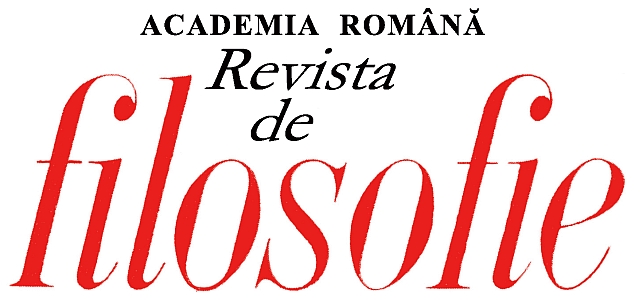
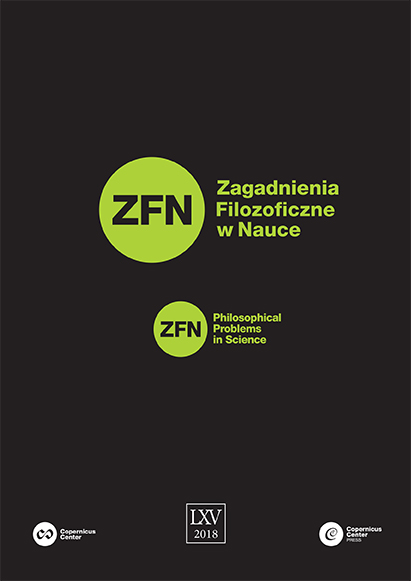
The aim of the presented article is to provide an in-depth analysis of the adequacy of designating Penrose as a complex Pythagorean in view of his much more common designation as a Platonist. Firstly, the original doctrine of the Pythagoreans will be briefly surveyed with the special emphasis on the relation between the doctrine of this school and the teachings of the late Platonic School as well as its further modifications. These modifications serve as the prototype of the contemporary claims of the mathematicity of the Universe. Secondly, two lines of Penrose’s arguments in support of his unique position on the ontology of the mathematical structures will be presented: (1) their existence independent of the physical world in the atemporal Platonic realm of pure mathematics and (2) the mathematical structures as the patterns governing the workings of the physical Universe. In the third step, a separate line of arguments will be surveyed that Penrose advances in support of the thesis that the complex numbers seem to suit these patterns with exceptional adequacy. Finally, the appropriateness of designation Penrose as a complex Pythagorean will be assessed with the special emphasis on the suddle threshold between his unique position and that of the adherents of the mathematicity of the Universe.
More...
The paper consists of two parts. In the first one I present some general remarks regarding the history of negation and attempt to answer the philosophical question concerning the essence of negation. In the second part I resume the theological teaching on the degrees of certainty (notae theologice) and point to five forms of negation – known from other areas of research -- as applied in the framework of theological investigations.
More...
Recenzja książki: Frans de Waal, Are We Smart Enough to Know How Smart Animals Are?, W.W. Norton & Company, Inc., New York 2016, ss. 473; polskie wydanie: Bystre zwierzę: czy jesteśmy dość mądrzy, aby zrozumieć mądrość zwierząt? tłum. Ł. Lamża, Copernicus Center Press, Kraków, 2016, ss. 438.
More...
Recenzja książki: Bernd Heinrich, Umysł kruka. Badania i przygody w świecie wilczych ptaków, tł. M. Szczubiałka, Wydawnictwo Czarne, Wołowiec, 2018, ss. 504.
More...
Recenzja książki: Elaine Landry (red.), Categories for the Working Philosopher, Oxford University Press, Oxford, 2017, ss. xiv+471.
More...
Book review: Yuval Noah Harari, Homo Deus. A Brief History of Tomorrow, Vintage, London, 2017, pp. 512.
More...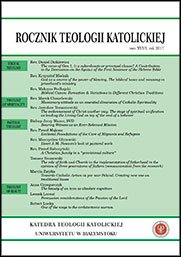
Because the topic is complex, the representatives of various scientific disciples have taken up the question of the corporeality of the human person. For example, biological and medical science researchers analyze the human body as a biological phenomenon, while those in the humanities, philosophy, or the social sciences consider the socio-cultural dimensions of corporeality. This article takes the latter approach both by considering the thoughts of select Christian philosophers and analyzing results obtained from a study carried out among people aged 60 years and older in order to answer the following questions: Do the elderly perceive the human body as a biological or as a sociocultural reality? How does this same population understand the aging body? According to the results of this study, seniors perceive the human body at any age primarily as a biological reality. The way that the study participants experience the drama of aging, as St. Augustine calls it in his writings, could have influenced why they rarely consider the sociocultural dimension of aging.
More...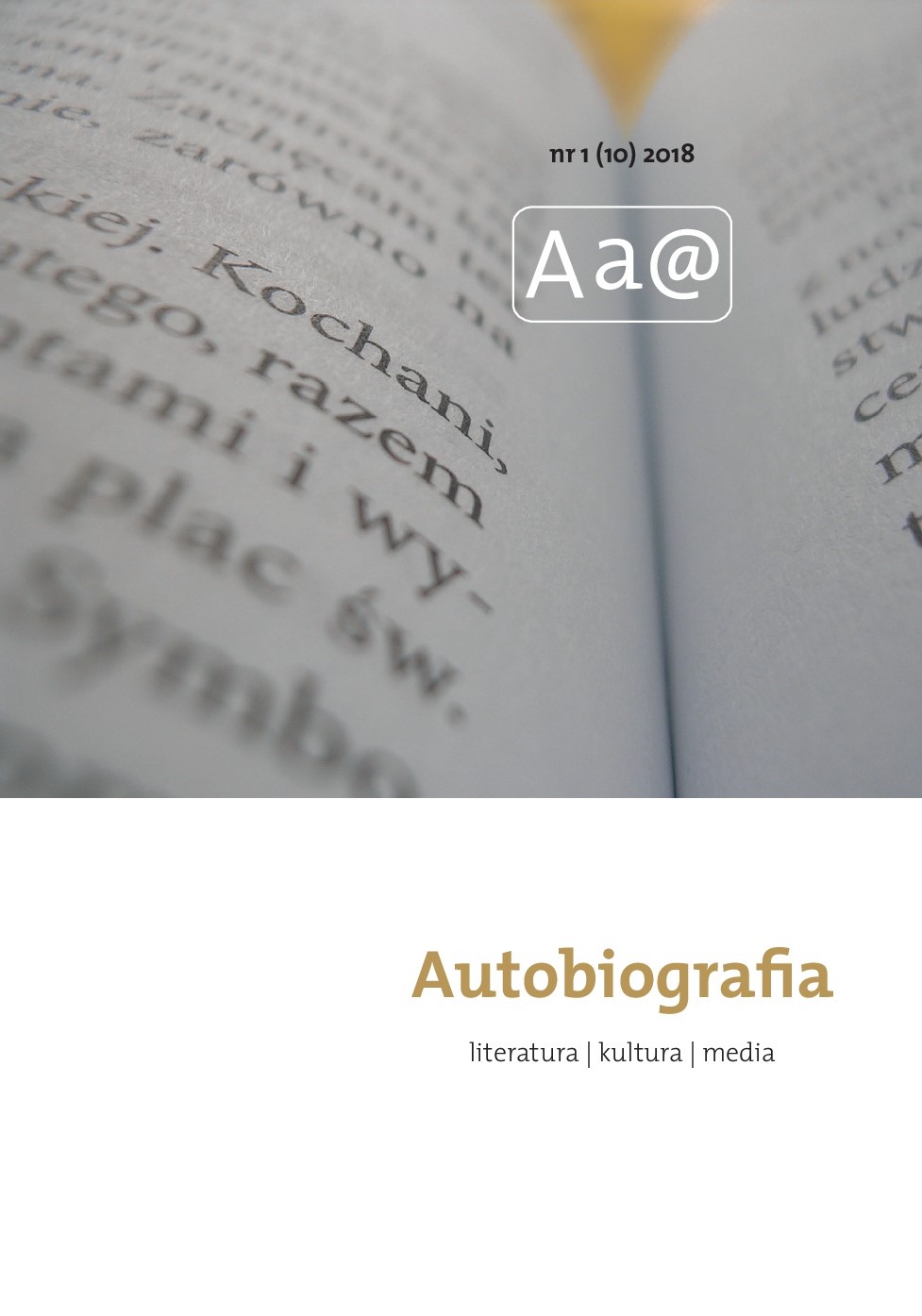
The article discusses the relations between autobiography and feminist philosophy, taking Luce Irigaray’s thought as an example. Although traditional philosophy usually has been perceived as anti-biographical, as it divides philosophical concepts from its material roots, feminist philosophers and theoreticians exposed materiality of knowledge by stressing the importance of its bodily, sexuated, historical, and cultural situatedness. In this sense autobiography of feminist philosophies is understood as both, public and private, academic and personal, theoretical and practical, ontological and epistemological way of knowledge production.
More...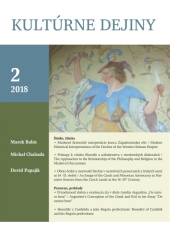
The goal I pursue in this article is to look at the medieval discussions on the relationship of philosophy and religion from a systematic point of view, i. e. I will try to identify, classify and characterize different perspectives on solving this problem. In doing so, I draw some remote inspiration from the Wittgensteinian concept of “family resemblances” (Familienähnlichkeiten). The central criterion in distinguishing between them is the degree of autonomy attributed to philosophy or religion and the nature and extent of criticism directed at philosophy or religion. Based on this concept, we can delineate four main approaches: radical / moderate philosophical approach and radical / moderate religious approach. The present attempt is a combination of the historical approach with a systematic one. Based on a set of common and similar traits, there emerges a unifying account that can provide a meaningful “meta-orientation” in the chosen historical-philosophical topic.Most of the accounts of the medieval discussions on the relationship between religion and philosophy have either a historical or philosophical character, or this relationship is presented only in the context of the work of one selected author. The goal I pursue in this article is a different one. I will attempt to look at the medieval discussions from a systematic point of view, i. e. I will try to identify, classify and characterize different perspectives on solving this problem. In doing so, I draw some remote inspiration from the Wittgensteinian concept of “family resemblances” (Familienähnlichkeiten). To achieve my goal I choose several figures who may be regarded as exemplary representatives of one or the other position. I am aware that attempting to systematize the main philosophical attitudes brings with it the risk that the result will not exhaustively capture all the developments in the opinions of the investigated authors and that some authors could be attributed to two or more approaches. Therefore, the present account of the main positions is meant to be preliminary and open to further corrections or criticisms.I maintain that in the medieval discussions on the relationship of philosophy and religion two major positions can be identified. In view of the first one, it is rational / philosophical knowledge that is accentuated, whereas in the second one the emphasis is put on the primacy of faith / religion. Within these two main positions, it is possible to distinguish between radical and moderate approaches. The central criterion in distinguishing between them is the degree of autonomy attributed to philosophy or religion and the nature and extent of criticism directed at philosophy or religion. Based on this concept, we can delineate four main approaches: radical / moderate philosophical approach and radical / moderate religious approach.The kernel of the radical philosophical approach (Al-Farabi, Averroes) lies in the claim that only the philosophical / rational truths are true in the absolute sense and therefore superior, whereas the religious truths are held to be true only in a derivative sense and are thus subordinate to philosophy. According to radical philosophers, philosophy offers scientific knowledge of principles in theoretical and practical sciences and supports them with syllogisms. Human reason is understood to be the highest power of the soul, the competence of reason is highly appreciated, and the world is seen as capable of rational interpretation. Religion, on the other hand, is denied its theoretical autonomy, often being portrayed as a mere derivative or imitation of philosophy. Religious truths are interpreted as a metaphorical-rhetorical expression of the truths of philosophy, and religious regulations as predominantly legal concretizations of general philosophical principles of practice. However, religion as a whole is not rejected, since by expressing the truths of philosophy in a metaphoricalrhetorical and concrete form, religion makes these truths accessible to the unlearned masses and thus fulfils a significant social function in the moral education of the masses. Philosophy and religion represent two paths to happiness, but their viability differs according to the nature of the individual person: the philosophical path is more perfect, superior, and in general intended for the educated / rational elite, while the religious path is incomplete, subordinate, and more suited for the broad masses of believers.In the moderate philosophical approach (Boethius of Dacia), philosophy is understood to be a human science based on rational argument. Again, philosophy is intended only for the educated elite; it is either indifferent to religion or is open to it at best. Importantly, philosophy is not held to be competent to pass judgement on the articles of faith. Despite the positive appreciation of the capabilities and autonomy of human reason in the study of reality, philosophical investigation remains to be limited to the human perspective, and in this way its competencies and demands are restricted. Religious truths are considered to be superior because they come from revelation that transcends the limits of human science. Therefore, it is possible to say with no negative connotations that theology is not a science, or rather, that it is a science sui generis. The moderate philosophers do not criticize and do not act negatively against religion, but rather respect its superiority and autonomy for practical and theoretical-methodological reasons. According to them, philosophy and religion are two autonomous areas with their own subject matters, methods, and definite competencies, and it is appropriate to respect both of them. Philosophy is an autonomous way to happiness, but it is not an equal alternative to the religious path, because religion comes with a promise of happiness that totally exceeds human possibilities.In the radical religious approach (Al-Ghazali), religious truths are viewed as superior to philosophical ones, because they come from the revelation of God which is true in every aspect. Philosophy and human reason are the target of constant criticism, their imperfection and falseness are strongly pointed out. Philosophy / human reason is partly denied its autonomy because of the fact that theoretical and practical philosophical truths are viewed as a derivative of religious law. The criticism of reason leads to elevation of the will of man and God to the rank of the highest power, which nourishes further development of modal logic. This critical attitude, however, does not lead to a flat condemnation of philosophy as such. Some philosophical disciplines are accepted (logic, part of ethics), but others are totally rejected (metaphysics) as a source of delusions and heresies that threaten religion. Philosophy needs to be revised and only afterwards will be capable of becoming a useful tool for religion / theology. Overall, it is emphasized that philosophy / human reason must be approached from a religious perspective. Philosophy is urged to acknowledge its subordination or the attitude of humility towards religion in both theoretical and socio-ethical dimensions. Philosophy is not admitted as a separate alternative way to attain happiness, since whenever there is any tension between religion and philosophy, religion must always be preferred.In the moderate religious approach (Thomas Aquinas), similarly to the radical religious one, religious truths are considered superior both theoretically and practically, philosophical truths are viewed as imperfect and subordinate. Unlike the radical religious approach, the moderate religious approach considers the human reason / philosophy to be autonomous, albeit firmly subordinated to religion / belief and restricted to the human / natural perspective. Although human reason with its imperfections and fallacies is being criticized, there is also a positive view of its abilities. Human reason / philosophy leads to knowledge that can serve as a presupposition for supernatural truths of faith and be helpful in the contemplation, defense and spread of faith. The moderate theologians, unlike the moderate philosophers who avoid the interconnection of philosophical and religious discourses, are seeking to establish a synthesis between faith and reason. Theology is understood to be a science which, on the one hand, has similarities with philosophy (discursive character and syllogistic arguments), yet goes beyond philosophy and is regarded to be a sui generis discipline. Subjugation of reason / philosophy to faith leads to their greater perfection, and thus to more and more effective way of approaching God as the ultimate source of human happiness.The present proposal for systematization of a multitude of medieval viewpoints on the issue of the relationship between philosophy and religion is advanced as a working framework which allows to include individual authors as well as particular periods of the author’s intellectual development. As already mentioned above, this framework is open to criticism and revisions. Notwithstanding some legitimate doubts and potential drawbacks, I see this framework as inspiring in that it might represent a step towards abandoning a purely historical-philosophical inquiry, which is always prone to end in an incommensurable plurality of analyses of various authors. The present attempt is a combination of purely historical approach with a systematic one. Based on a set of common and similar traits, there emerges a unifying account that can provide a meaningful “meta-orientation” in the chosen historical-philosophical topic.
More...
In this paper we propose the Saint Augustine‘s conception of the good and evil, which could be found in his essay De natura boni. The first translation into the Slovak language of the first chapters of this discourse is incorporated into this work as well. The main goal is held on the explication of the nature of good and the existence of evil in the God’s creation. We try to show that Saint Augustine in his teaching proclaims that there is no evil principle, or evil god as the source of any bad creation. We will see that the only creator is God, the highest good and the principle of all creatures created ex nihilo. According to Saint Augustine’s thinking the evil does not exist. There exists only the created good on the different stages of its perfection. To explain it we will see how Saint Augustine introduces the three categories – the measure, the form and the order, that have the influence on the perfection of the creatures.Saint Augustine, the one of the biggest and in the history the most influential thinker of the Western Church, in his apologetic discourse having the title De natura boni (On the nature of Good) against the Manichaean dualism deals with the metaphysical question concerning the origin of good and evil. Using the platonic philosophy and the doctrine of emanation he proclaims that the highest good is God who claims ex nihilo the existence of all creatures. So, it is clear that the creatures having their origin the highest good must be good as well. Saint Augustine queries what good is itself? In his teaching he defines the good as nature. And nature is obviously good for him. The bishop of Hippo discerns in reality the three types of nature. The first one is nature not having been created, unchangeable and spiritual which is God itself. The second one is nature spiritual which is having been made and which is changeable. And finally the last one, the third nature is defined by Saint Augustine as nature created, corporeal, which could be modified and changed. All these natures are certainly good and they differ only on their stage of perfection and on the distance, which separates them from God. If the creatures are more elongated from the God, the source of good and perfection, they are less perfect and vice versa. There are also the other factors, which could modify the quality of the creatures. These factors are described by Saint Augustine as the categories that influence the nature of the creatures. He distinguishes three of them – the measure, the form and the order. The measure, form and order are in fact the three constitutional elements of each nature, of each being. The corruption of one of them corrupts the nature itself, not only the good of creature, but it is being obviously. And Saint Augustine believes that the destruction of only one of these three elements could destroy the whole being of the creature. It is evident that the creatures differ between them by the amount of the measure, form and order. In the question of the origin of evil our bishop of Hippo proceeds analogically. All created natures; all created beings are good by their nature. The good God can create only good creatures because he wants them to be good and perfect. The evil represents simply the absence of the good, the corruption or destruction of any of elements held in the nature of the being. At the end of our paper we could find the translation from Latin to Slovak language of elected chapters concerning the matter of good and evil taken from the Saint Augustine’s treatise De natura boni.
More...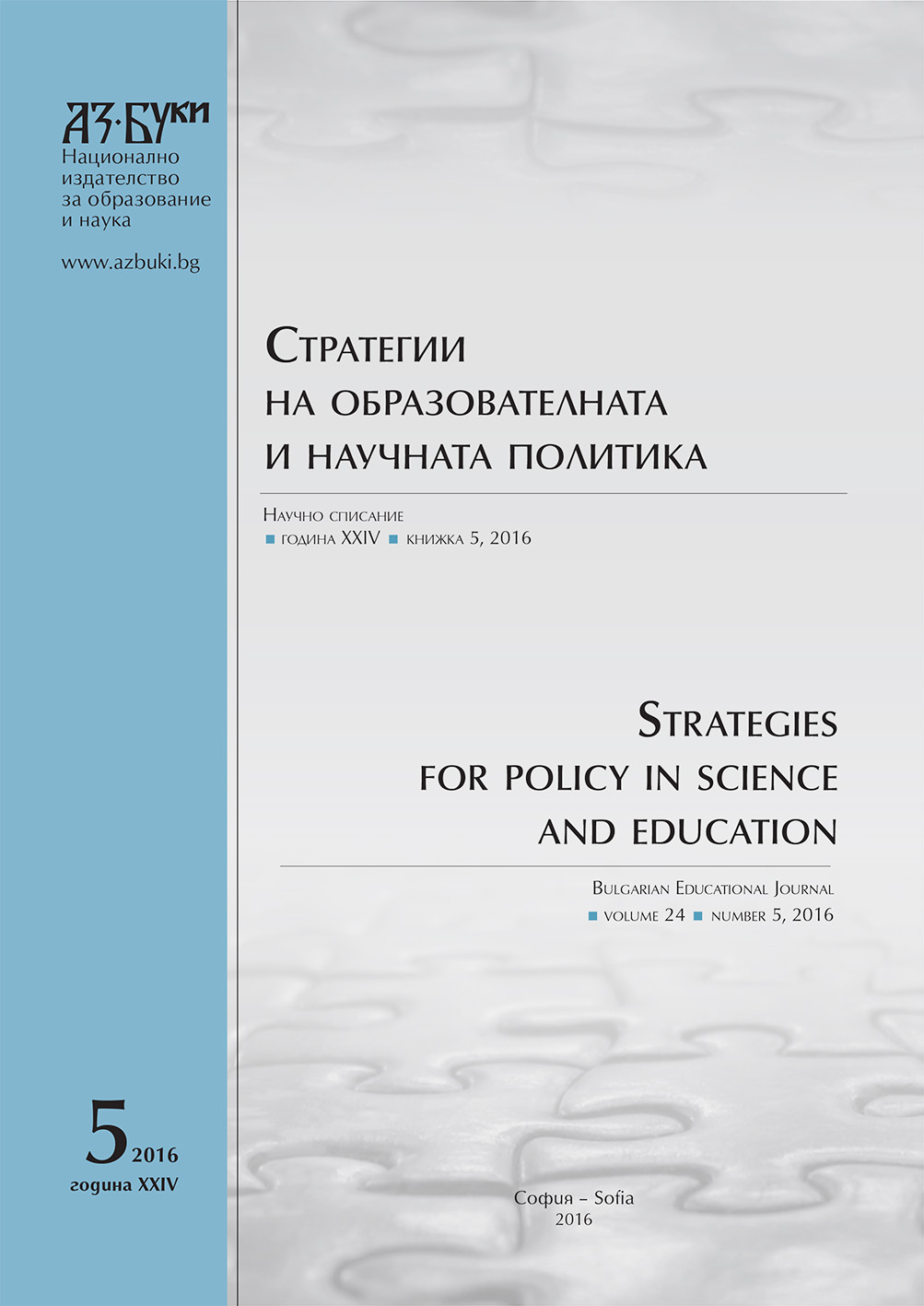
The article examines the transformations that have occurred in social functions, role and status of science in the modern knowledge society. It was found that modern science is problem-oriented, with extended ethos, deeply penetrating into the public system. There is a change in the target context of social functions – a transition from aspiration to obtain a scientific result that is possible and true to scientific result that is potentially useful and / or appropriate. It is revealed that the growing participation of the public in various stages of generating scientific knowledge, as well as its strengthened commitment to the issues of science policy, is a serious sign of the increased role of science in the modern knowledge society. The conclusion was made that the transformed social functions of science provoke further changes in the production, validation and dissemination of knowledge in the knowledge-based society. It is identified also a restored trust in the potential and role of basic research. The changes in the status of science are outlined, presenting the potentially negative effects of the loss of academic autonomy. Recommendations toward science policy are made in order to strengthen the social role of Bulgarian science.
More...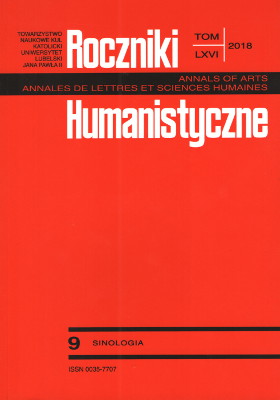
The article contains translation of classical Chinese text Greatest Learning Da Xue 大學 and the interpretation of important terms such as de 德 and gewu 格物. Da Xue is a part of ancient Chinese texts Liji 禮記 but the reinterpretation of the text became later a basis of neo-confucian philosophy. I argue that Da Xue is a pragmatic manual for an individual who firstly wants to cultivate himself and being cultivated is able to change the world into confucian utopia. Hence the phrase gewu does not have a meaning of “investigating things” in order to understand li 理 but “understanding the order of things that come”.
More...
The paper focuses on specific intuitions associated with mental concepts—especially with the concept of the soul in Mandarin. The main objective is to seek the basic linguistic meanings that shape folk intuitions about the mental space in Chinese culture through a linguistic analysis performed on the selected data from modern Chinese language dictionaries, authentic language corpora, and literary works. First, we briefly describe the phenomenon of high-level synonymy in Chinese language, including terms for describing mental concepts. Next, we discuss the linguistic realizations of the concept of the mind as it is presumed to be interrelated with the concept of the soul. Then, we present a linguistic analysis of terms used to talk about the soul in Mandarin to show how the concept of the soul is reflected in this language. The analysis allowed us to demarcate the semantic boundaries of the “soul.” We found that the Chinese folk model of this concept distinguishes between two main conceptualizations: (1) the “soul” as an invisible and immaterial part of living creatures, which is not bound permanently to the body, and as a seat of emotions and thoughts, and (2) the “soul” as a quasi-independent spiritual being that shows much creative potential and is able to persist after the physical death of a person or animal. Although we found a tendency to separate the “soul” from the “body”, the “soul” is still functionally conceptualized in relation to the “body.” Accordingly, we provided linguistic evidence supporting the arguments against the radical mind–body dualist position and for the sake of the weak mind–body holism.
More...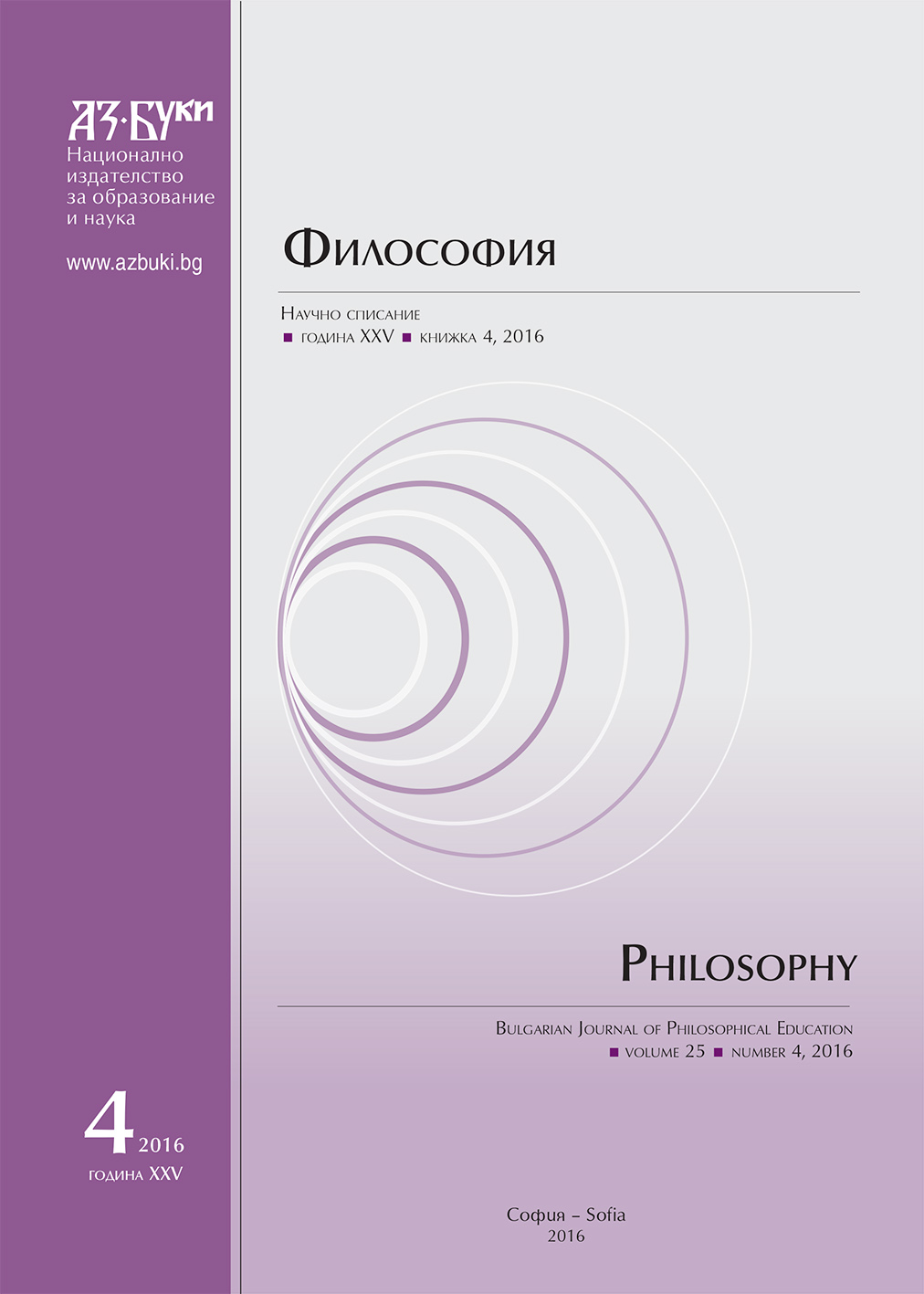
This article is mainly concerned with the reconstruction of JamesFrederick Ferrier’s theory of ignorance. The growing scientific interest towards thesocial dimensions of ignorance is the reason to turn back to the initial explication of the relation between knowledge and ignorance. The inquiry follows Ferrier’s foundation of the theory of ignorance, as well as his views concerning consciousness.A special interest is put on some main theoretical problems explicated in relationto Ferrier’s critique towards the philosophy of mind and mainly towards Reid’s philosophy of common sense.
More...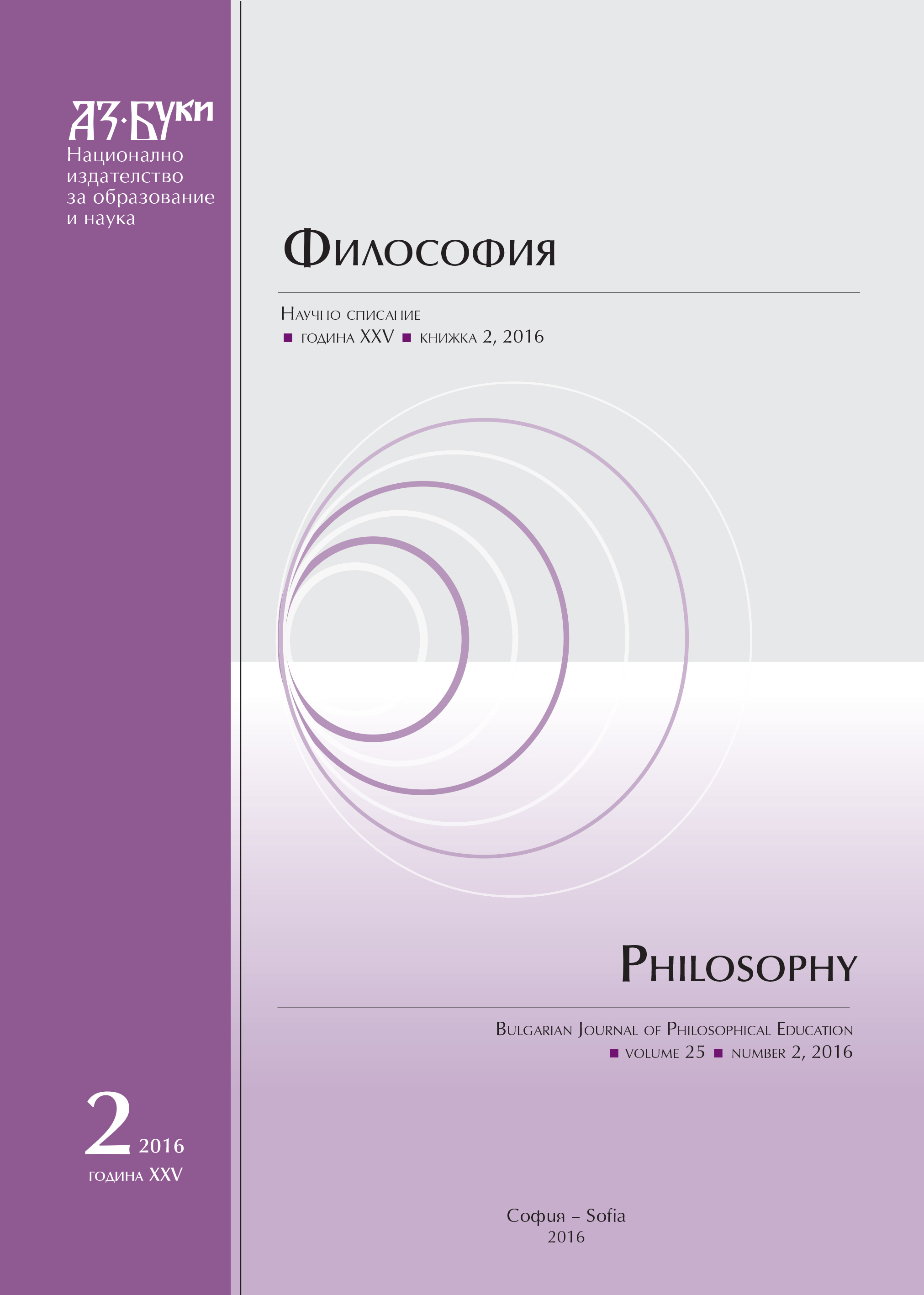
Summary of the scientific philosophical conference "Transcendental Consciousness versus Phenomenological Unconscious"
More...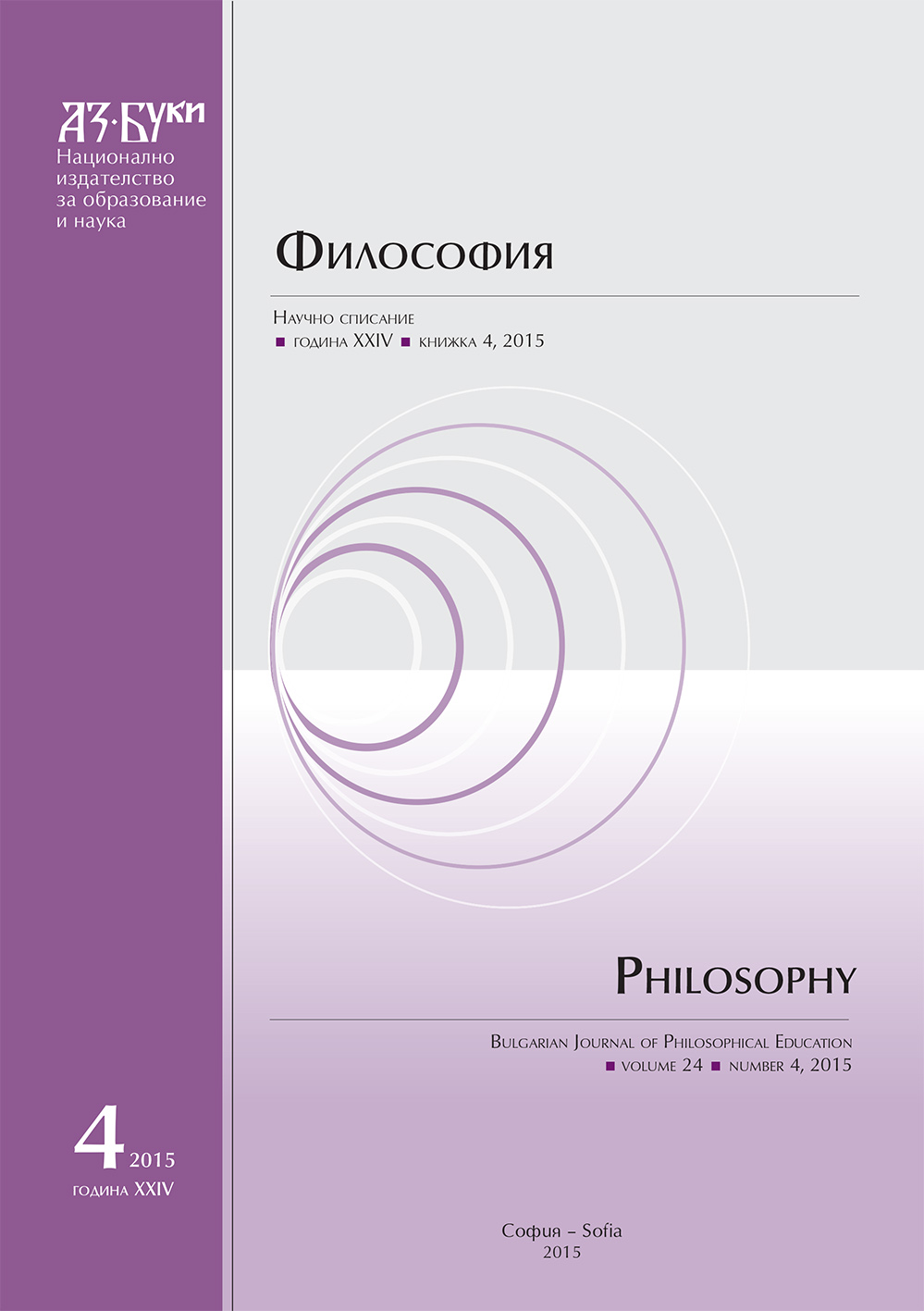
Review of Boris Manov's book "Paradigms and doctrines in European political thinking"
More...